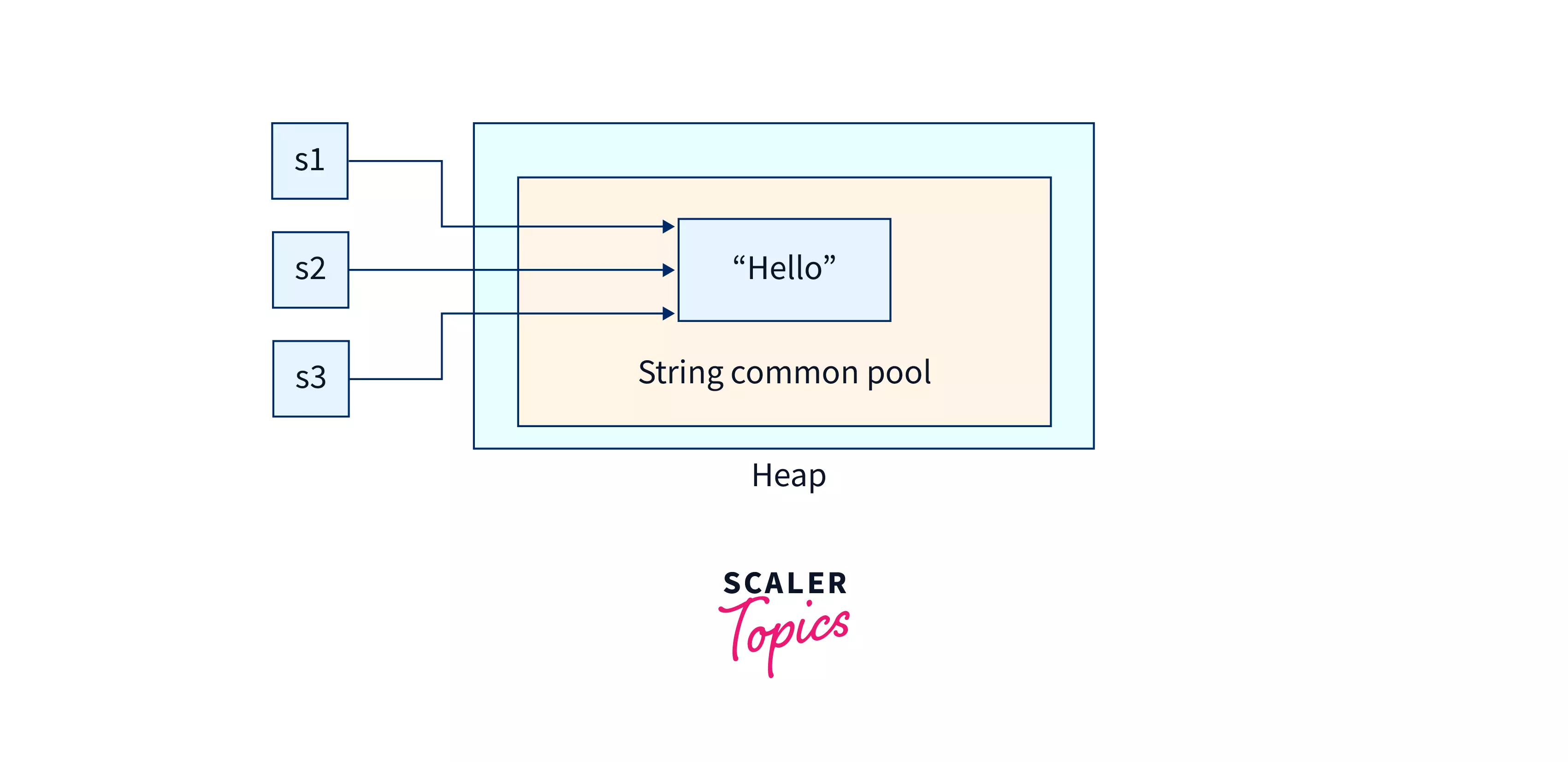Why Are Strings Immutable in Java? Comprehending the Core Principles
Why Are Strings Immutable in Java? Comprehending the Core Principles
Blog Article
Immutable Strings: A Secret Part in Ensuring Data Uniformity and Reliability
In the realm of data monitoring, the value of unalterable strings can not be overstated. The idea of immutable strings goes beyond simple technicality; it is a cornerstone in the facility web of data governance.
The Concept of Unalterable Strings
Immutable strings, a basic principle in programming, describe strings that can not be customized as soon as they are developed. Fundamentally, as soon as a string worth is assigned, any type of procedure that appears to customize the string actually develops a new string. This immutability makes sure data consistency and dependability in applications, as it prevents unforeseen adjustments to the original information.
Advantages in Information Consistency

Information uniformity is important in various elements of software program advancement, including data source administration, multi-threaded environments, and distributed systems (Why are strings immutable in Java?). Unalterable strings contribute dramatically to attaining this uniformity by avoiding information corruption as a result of simultaneous access. In scenarios where multiple procedures or strings connect with the very same data at the same time, immutable strings serve as a guard against race problems and synchronization problems
Furthermore, the immutability of strings simplifies debugging and testing processes. With unalterable strings, developers can trust that as soon as a string is set, it will certainly remain unchanged, making it much easier to map the resource of mistakes and making certain that test situations create consistent outcomes. This reliability in data dealing with eventually brings about extra durable and stable applications.

Executing Unalterable Strings
Ensuring the immutability of strings needs a thoughtful method to their execution in software growth. One key technique is to develop string courses in a manner that prevents adjustments when a string item is created. By making strings unalterable, developers can enhance information uniformity and integrity in their applications.
To apply immutable strings efficiently, developers should prefer developing new string objects as opposed to modifying existing ones. This technique ensures that when a string is assigned a worth, it can not be altered. Additionally, any kind of procedure that appears to customize the string must create a new string with the preferred changes rather than modifying the original.
Furthermore, making use of immutable strings can streamline concurrency administration in multi-threaded atmospheres. Because immutable strings can not be altered after production, they can be safely shared amongst several strings without the threat of information corruption.
Role in Integrity Assurance
In software program development, the use of unalterable strings plays a crucial role in making sure the dependability of data procedures. Immutable strings, as soon as produced, can not be modified, guaranteeing that the data they represent remains constant throughout the application's implementation. This immutability home provides a degree of assurance that the information being processed will certainly not be accidentally transformed, causing unexpected end results or mistakes in the system.
By incorporating unalterable strings right into software program design, designers can boost the integrity of their applications by lessening the threats linked with mutable information - Why are strings immutable in Java?. Unalterable strings aid in stopping information corruption or unexpected modifications, which can be specifically critical when managing delicate information or when information stability is paramount
Additionally, making use of unalterable strings simplifies concurrent processing, as several strings can safely gain access to and share string information without the risk of one thread changing the material while one more is reading it. This facet contributes substantially to the total dependability of the software system, guaranteeing foreseeable and constant habits in information dealing with procedures.
Applications and System Assimilation
The smooth combination of immutable strings into various applications and systems is crucial for making sure robust information consistency and integrity throughout diverse technical environments - Why are strings immutable in Java?. Immutable strings play an essential duty in enhancing the stability of data exchanges and interactions within complex software application ecosystems. By incorporating unalterable strings right into applications, developers can mitigate the threats linked with data tampering, unauthorized adjustments, and unintended alterations, therefore fortifying the general safety pose of the system
In the context of system integration, immutable strings function as a foundational aspect for developing protected interaction channels and promoting smooth information transfers between various components. Their unalterable nature guarantees that data sent in between systems continues to be unmodified and verifiable, lowering the probability of incongruities or mistakes that could jeopardize the stability of the whole system. Furthermore, immutable strings can boost interoperability between disparate systems by providing a standardized format for data representation, allowing much more efficient information processing and exchange procedures try this out across interconnected systems. By taking try this on immutable strings in applications and system combination processes, organizations can fortify their data facilities and promote the integrity and consistency of their info possessions.
Final Thought
To conclude, immutable strings play an essential role in preserving information consistency and integrity in numerous applications and system integrations. By making certain that strings can not be altered as soon as created, the stability of data is maintained, lowering the danger of incongruities and errors. Applying immutable strings can dramatically boost the dependability of systems, eventually leading to more trustworthy and accurate information handling.

Report this page